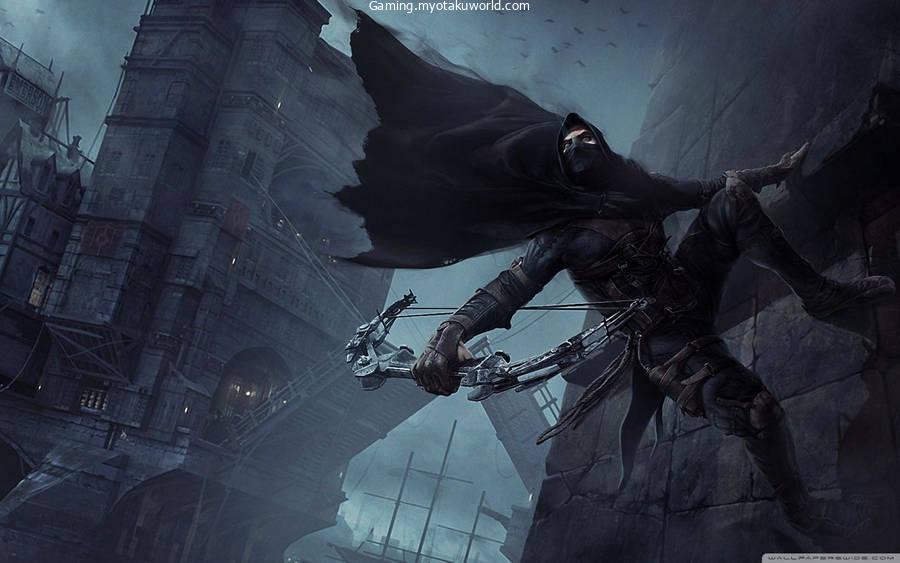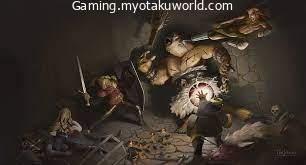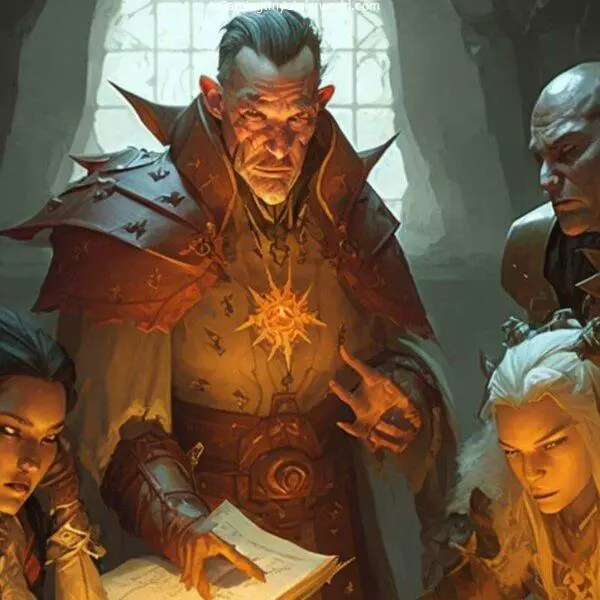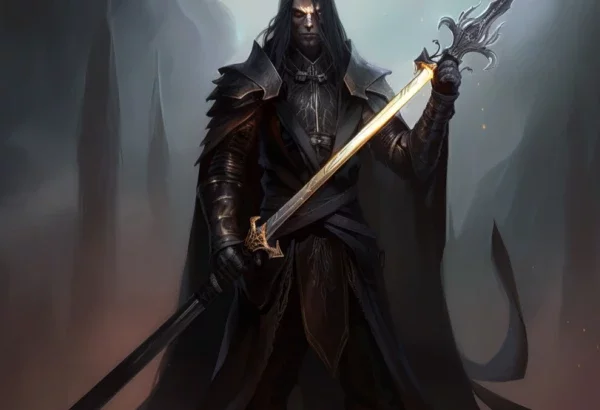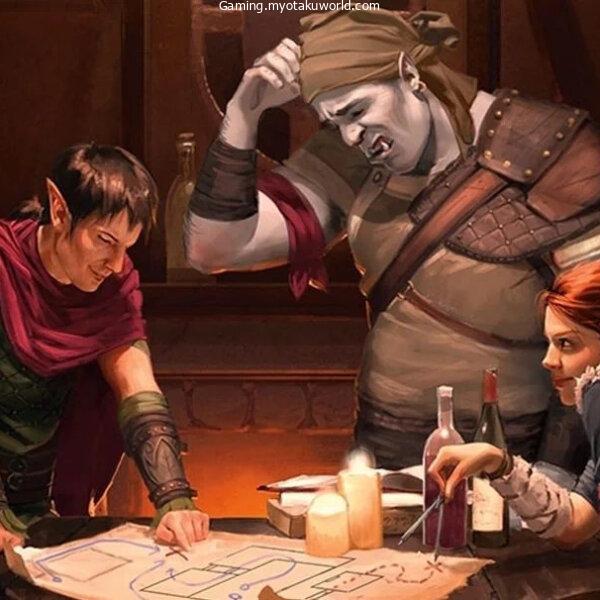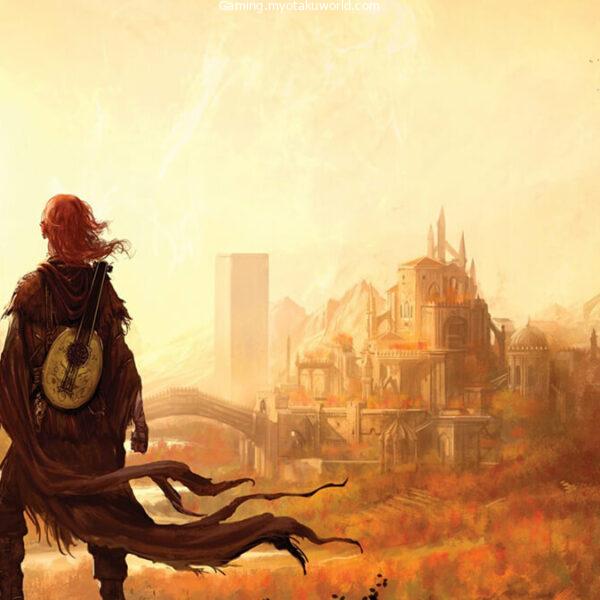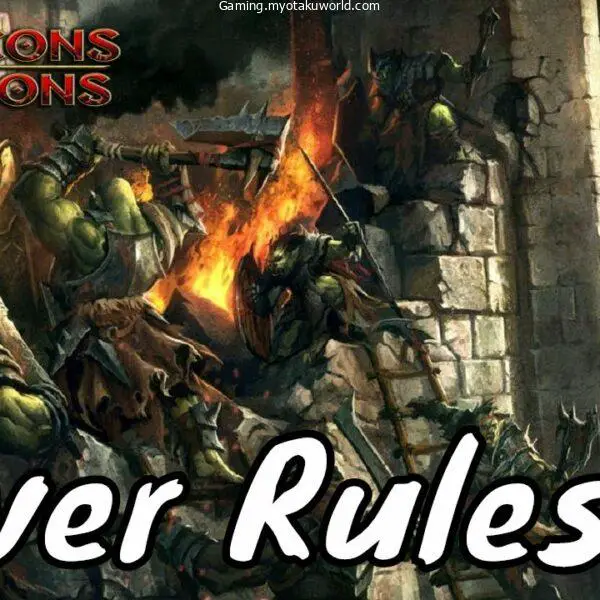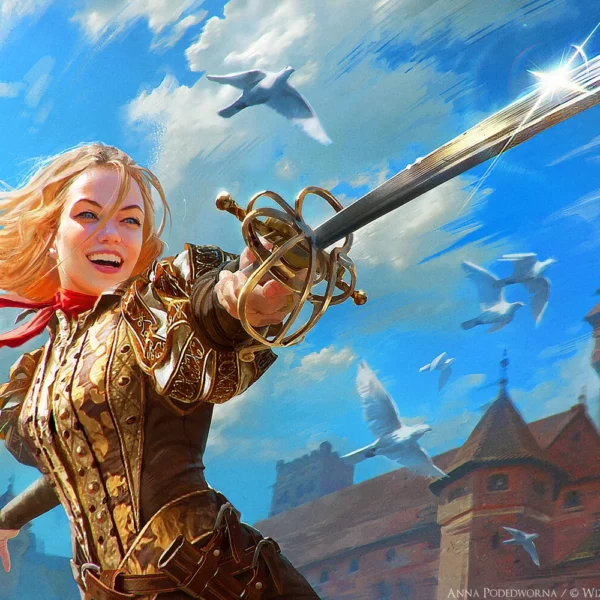To be honest, rogues and Rogue Backgrounds are underappreciated D&D character classes.
They’re known as edgy edgelords, but beneath their rough exteriors are tragic backstories that they refuse to discuss.
Please halt!
Because of the massive damage they deal, I adore the rogue’s additional action to disengage or hide.
They lack tankiness, but they won’t need it due to their agility and nimbleness.
And with this list, we’ll look at the best backstory ideas to keep your next rogue from being just another edgelord.
14. City Watch
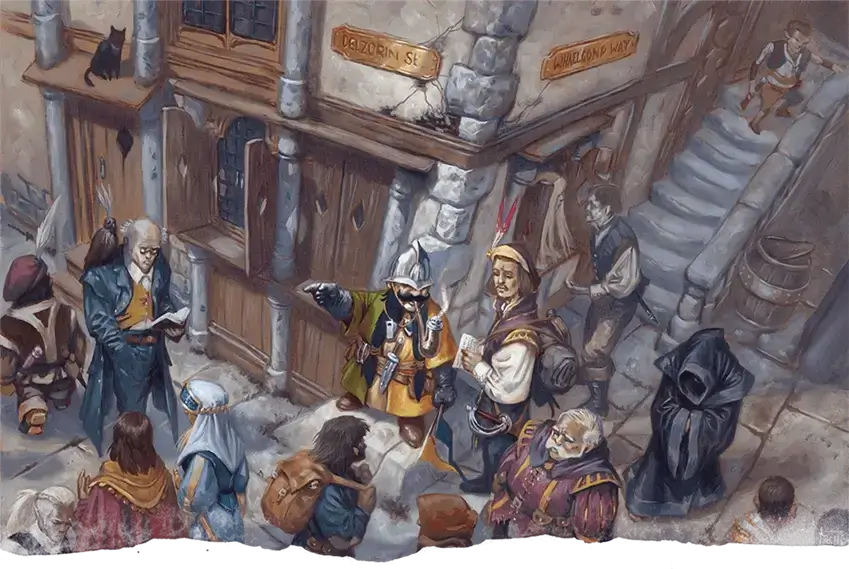
The Rogue’s history may seem at odds with his current persona.
However, using the City Watch history as a means to amuse undermine those expectations is a great way to spend some time.
In essence, your persona played the role of a security guard, keeping the peace by thwarting potential threats.
Would you say this is appropriate for the Rogue?
At first sight, it may not seem like it, but the skills Rogues use to commit crimes can also be used to prevent them.
Meaning the overall concept can still function.
Your character’s physical prowess and social intuition will both benefit from the skills you’ve honed.
While not necessarily usual for Rogues, they do make sense when you think about how much climbing and sprinting these characters do.
With this kind of education, you can also pick up a few additional languages.
Excellent for a character who needs or wants to concentrate more on interpersonal relationships.
For a Rogue, the list of recommended gear is a bit of a riot.
Some gold and items that can be used to distinguish your character as a member of the watch.
You get a horn to make like Boromir with when your character gets into danger.
Watcher’s Eye, a roleplaying tool, is useful for gathering intel about the local police and criminals.
This is great news if you’re playing a Face Rogue or a character who enjoys sleuthing, as you’ll have access to both sides of the law. One may be more kind to your persona than the other, though.
If you’d like your Rogue to have a more honorable history, the City Watch is the route to choose.
They help their community by using their skills of penetration and stealth.
Publication reference: The Sword Coast Adventurer’s Guide
13. Mercenary Veteran
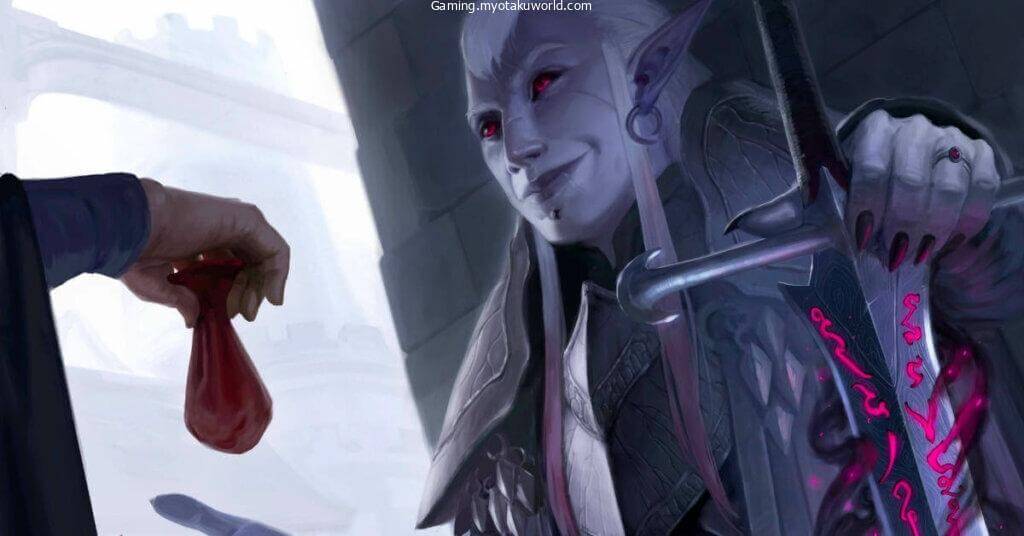
There could be some confusion as to why Rogues would select the Mercenary Veteran history.
However, they make an interesting and relevant backdrop for a memorable protagonist.
Playing as a seasoned Mercenary Rogue is a good fit with the class’s intended function.
The role you’re performing requires you to portray someone who accepted payment for their assistance.
Being a former scout for (or assassin for) a mercenary organization plays to a rogue’s reputation for acting in his or her own self-interest.
You have a reasonable set of Skill proficiencies for a Rogue, which can help them both physically and socially.
These abilities aren’t necessarily what one would expect from a Rogue, but they help make up for the class’s other drawbacks.
You will also get some proficiency with tools.
However, one is better suited for make-believe, whereas the other is more practical in real-world travel situations.
But they’re entertaining and might prove useful in the heat of battle.
The Mercenary Veteran background has a thematically appropriate set of weapons and armor.
You will be given a roleplay item, some gold, and something that will identify you as a former employee of the corporation and your position within that company.
Your default theme is Mercenary Life.
That way, you can locate additional businesses to contact and pick up some more hours.
You can generate some side cash because you know a little about other businesses.
Both are pieces of information that many mobsters would find useful.
If you want your Rogue to have a background in light military service, the Mercenary Veteran option is for you.
It works wonderfully for protagonists who have endured hardship and discovered fulfillment in the mercenary lifestyle of doing odd jobs for pay.
Playing a character with a murky past in regards to the acts of their corporation is also greatly enhanced by this history.
Publication reference: The Sword Coast Adventurer’s Guide
12. Urban Bounty Hunter
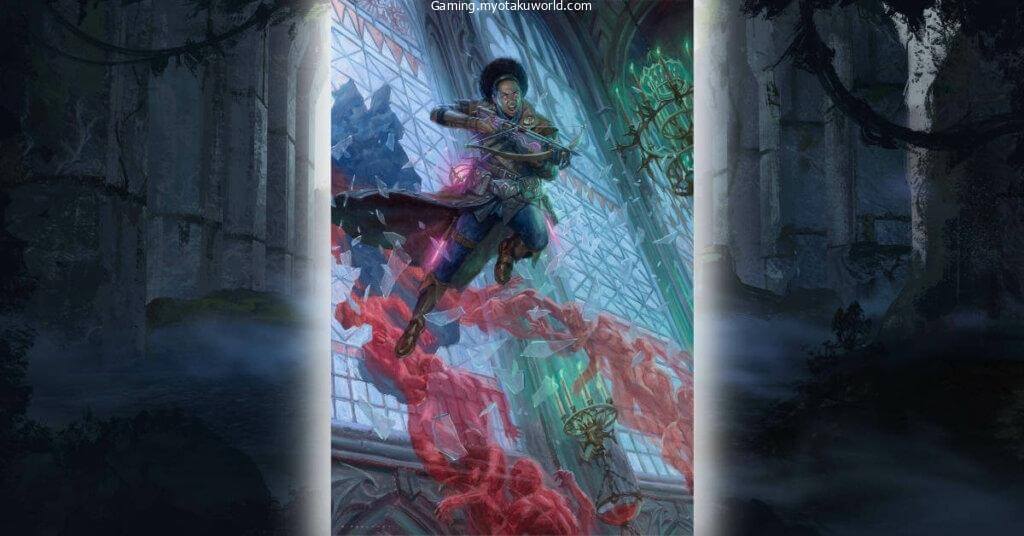
When playing the role of an Urban Bounty Hunter, you must resort to any methods necessary to capture your target.
This is effective and can have deep thematic implications for Rogues.
You can choose a specific choice under “Skill proficiencies” if you have this history.
Your character can be developed in a variety of ways, depending on your preferences, from being adept at chatting your way into a lead to becoming a master of slipping past guards.
Two Tool skills are also yours to use.
Of course, one of them can only be used with Thieves’ Tools, so it’s not exactly useful for Rogues.
The other exists primarily to add flavor and depth to role-playing activities.
Your initial inventory consists of clothes and a sizable sum of money, which is rather meagre.
Even still, my favorite part of Urban Bounty Hunter is the Ear to the Ground segment.
Your character has a good idea of where and when their preferred quarry can be found.
This facilitates locating data pertaining to their bounties.
If you want to play a bounty hunter, select the Urban Bounty Hunter origin story.
You want your Rogue to be able to sneak around and find the whereabouts of those who have bounties on their heads.
If you’re looking for a good backstory for your Face or Scout character, this is it.
Publication reference: The Sword Coast Adventurer’s Guide
11. Courtier
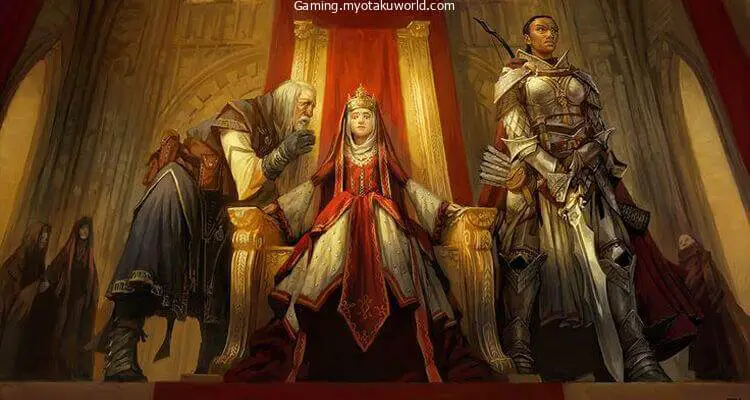
To play a Rogue from a Courtier’s background would be a unique twist.
On the other hand, it fits perfectly with the personality of a shady type who enjoys the occasional undercover assignment.
A Courtier is a person who is well-versed in the ways of bureaucracy and the workings of noble courts or organizations.
Because of this, a character with such a history is important when interacting with cunning aristocrats, hidden nobility, and covert groups.
You may tell a person’s true motives by the way they speak to you thanks to your skill at reading them, or you can use this ability to sneak into forbidden locations by talking your way in.
Both are crucial for Rogues who want to be the party’s Face.
You also gain fluency in a few additional languages, which will come in handy in a wider variety of social situations.
The Courtier’s list of amenities is somewhat sparse.
A few pieces of clothing and a small sum of gold are all that is needed.
However, Courtier’s Court Functionary tool is fantastic for navigating the bureaucratic maze.
You are familiar with the inner workings of noble courts and organizations, and as such, you know who the key actors are, whom to approach for answers, and the procedures you follow to achieve your goals.
If you appreciate the concept of using your Rogue’s wit and cunning to get past the court system and other bureaucracy, the Courtier background is for you.
Your protagonist should exhibit proper manners and grace as they deftly navigate their way to hidden information.
Publication reference: The Sword Coast Adventurer’s Guide
10. Investigator
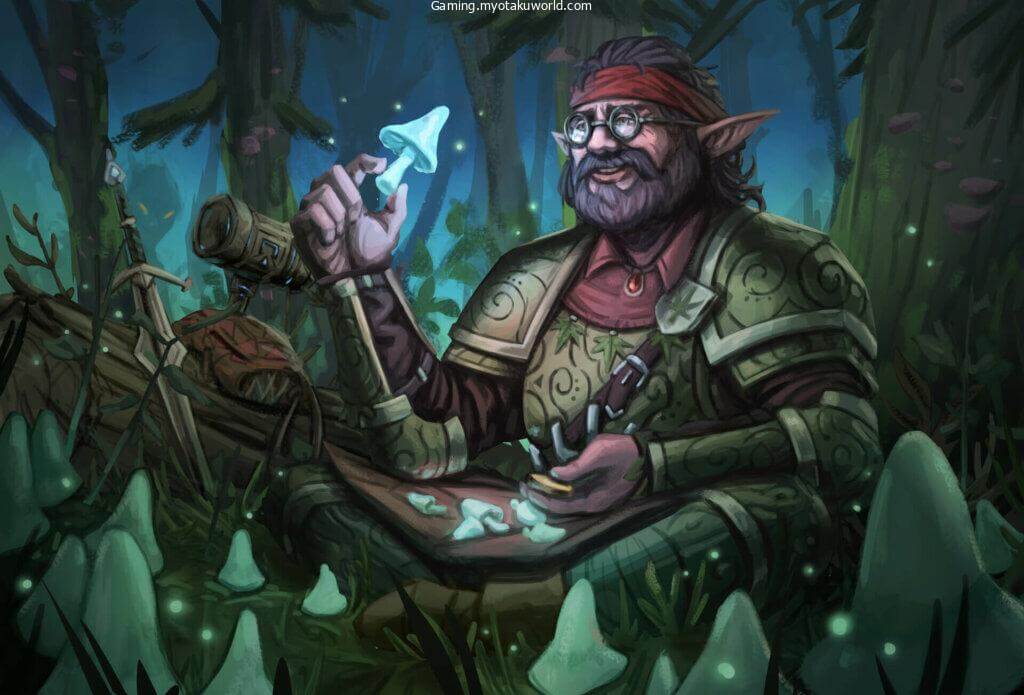
If you’re looking to play a sleuthy Rogue, the Investigator background is a great choice.
To put it simply, people from this sort of background enjoy the challenge of finding answers to mysteries.
They might look into a murder or other crime, or they might do it just for the fun of it.
For the Skill category, you can pick and choose from a number of mental abilities.
You can use it to better understand the locals or to take an overall inventory of the area.
Even if it’s just me, I’d want to see Stealth added as a skill for investigators so they can skulk around without drawing unwanted attention.
History can also help you acquire some useful Tool skills.
One of them is a set of Thieves’ Tools, which is of no use to the Rogue.
Moreover, the list of gear you have isn’t exactly riveting.
If nothing else, the fact that you’re given a relic from an old (and perhaps unresolved) case provides plenty fodder for creative role-playing.
Investigator’s search backdrop function simplifies the research process.
You have the social skills to approach people who might be able to help you out with some information.
Alternatively, you know where or how to find the relevant data.
If you want to play a detective who breaks all the laws to get the answers they need, the Investigator background is perfect for your Rogue.
Located in Van Richten’s Ravenloft Guide.
9. Faction Agent
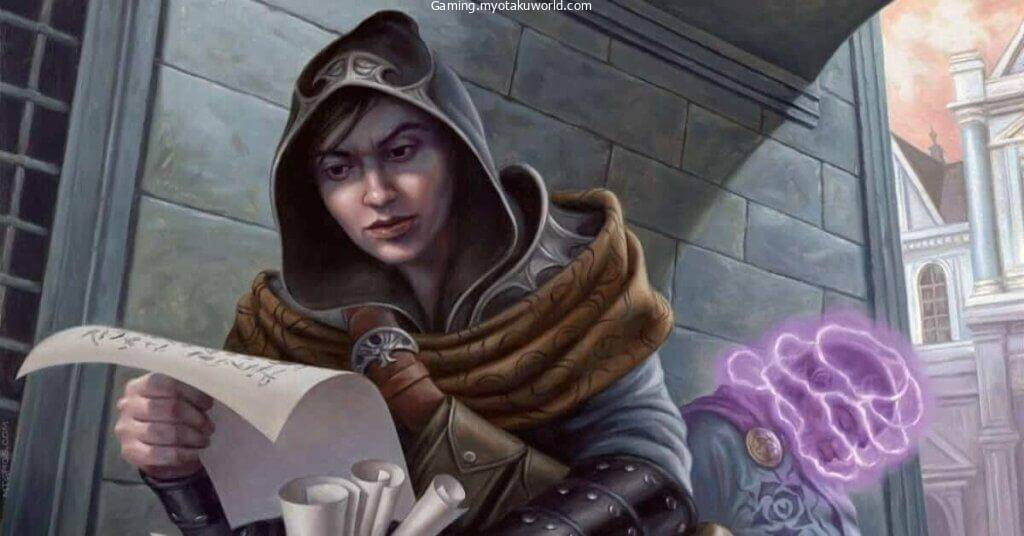
Being a Faction Agent is a respectable backstory for a Rogue.
You gain proficiency in one of the Intelligence, Wisdom, or Charisma skills, and one additional skill of your choice that is appropriate for a Face character.
To get the most out of your roleplaying experience, it’s best to pick one that fits well with your chosen Faction, consult your GM for suggestions.
In addition to your already impressive list of Language skills, this background will take it to the next level.
Once again, this is fantastic for a Rogue who places a premium on making conversation.
Your selection of tools isn’t exactly cutting-edge.
You do, however, receive a token representing your group, which could open up some interesting role-play possibilities.
The last step is to pick a Faction for your character.
This, of course, is dependent on the GM’s decision as to which groups will be playable in the game.
However you choose to play it, your character will have access to the credentials and identities of the agents in your faction.
A Rogue would benefit greatly from this, as their group might engage in illegal information exchanges or smuggling activities.
However, a hidden network of operatives has made safe homes and some data available to your character.
This fits quite naturally with the Rogue class’s ethos.
If you appreciate the idea of having a whole criminal or otherwise secret organization behind your Rogue, the Faction Agent backdrop is for you.
Publication reference: The Sword Coast Adventurer’s Guide
8. Criminal
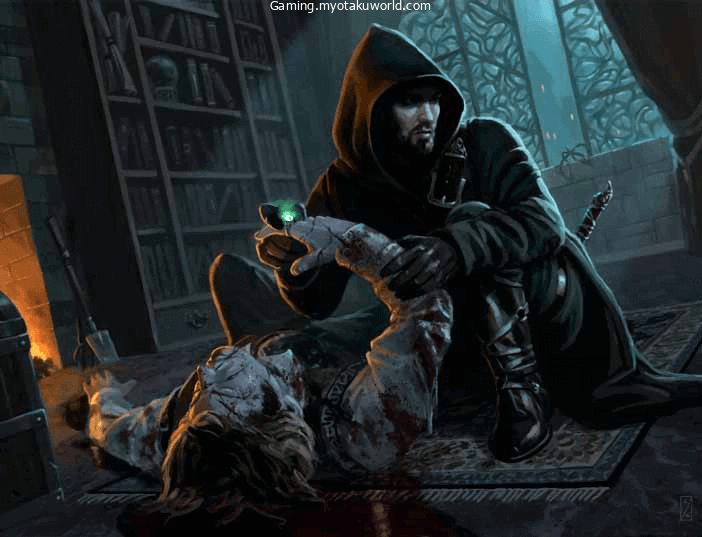
And here we have the requisite Rogue origin story.
For Rogues in Dungeons & Dragons, the criminal history is the most stereotypical.
You’ll learn a few new tricks as a Criminal, such as how to slip past security or how to lie your way out of trouble.
The two are perfect for any standard Rogue.
The Tool proficiency bonuses have been increased.
One of them is for Burglars’ equipment.
Since a Rogue’s natural skill is in that area, this ability is redundant.
The other is there mainly for flavor, but it could lead to some amusing antics in-game.
In comparison to the gear of people from other cultures, yours is very sparse.
In any case, you obtain a crowbar, which is something that, in my opinion, a lot of Rogues fail to appreciate.
When lockpicking fails, it’s a wonderful backup plan for getting inside.
The Criminal Contact function is available in addition to the Criminal background.
You have a personal connection to this person.
Someone you know has reliable resources and contacts.
The key is to not probe too deeply.
In addition, you get to decide what kind of criminal activity best suits your character’s personality.
It seems that you have earned notoriety for that type of criminal activity.
If you want to play up the stereotypical Rogue history, go with the Criminal option.
Players that enjoy the concept of “knowing a guy” in order to have access to information or assistance that may be questionable from a legal standpoint will enjoy this game mode.
Information obtained from the Player’s Handbook
7. Charlatan
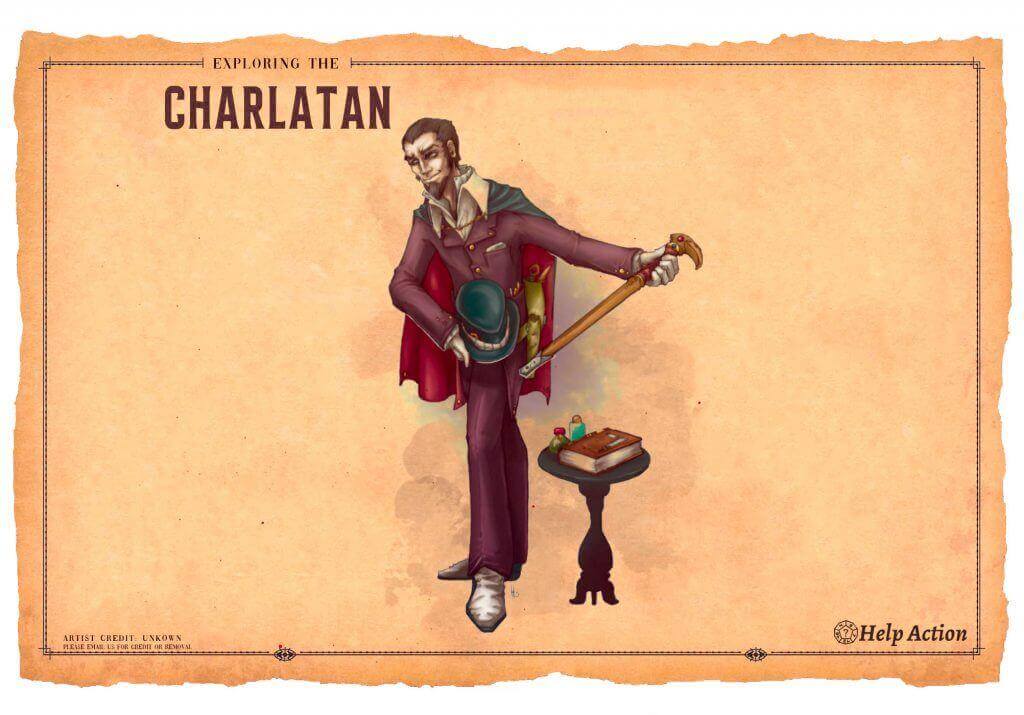
Rogues with a shady past make excellent Face characters, and that’s why that backstory is so much fun.
The premise of the Charlatan backstory is that your character has a hidden, alias.
You’ve got the credentials to back up your claim to that identity and your capacity to falsify official documents.
You’re also equipped with some Tool proficiencies, such as the ability to disguise yourself and forge documents to further substantiate your new identity.
You will also receive a disguise kit and something to back up your chosen means of acquiring valuables in addition to your second identity.
This wallpaper comes with your preferred color scheme already applied.
Simply put, you get to pick the specific con game you play for personal gain.
Possibility for amusing role-playing in your game.
In conclusion, Charlatan is a great background for Rogues in 5e who are interested in developing a more socially-focused character.
If you find the concept of traveling con artist or old-fashioned snake oil salesmen appealing, consider making your Rogue a Charlatan.
For those of you who want to be the party’s Face, this is the best option.
Information obtained from the Player’s Handbook.
6. Urchin
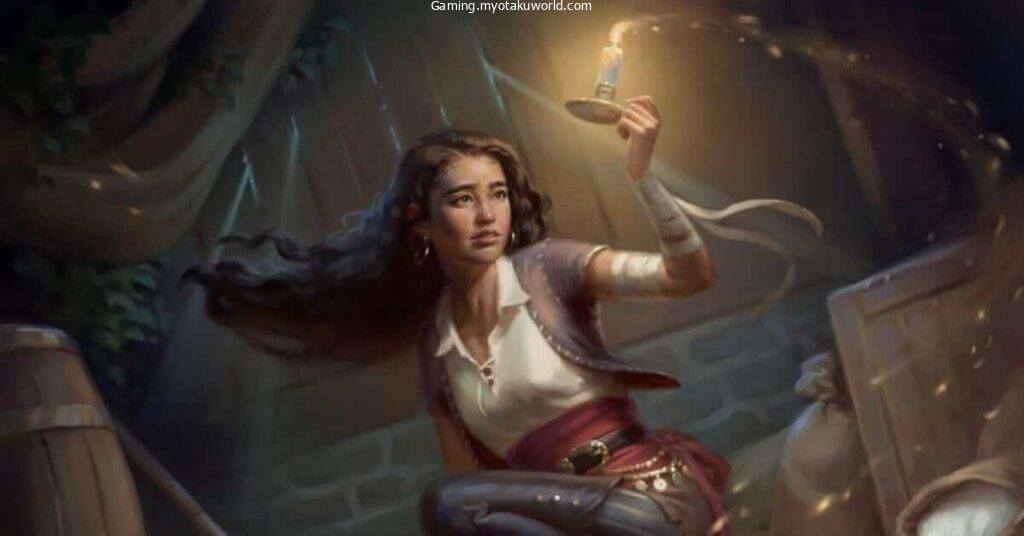
In Dungeons & Dragons 5th Edition, urchin is a fantastic origin for Rogues.
You’ve been given two Skill proficiencies that are tailor-made for a Rogue’s style of play.
The Rogue’s default skill set includes these two abilities.
Getting them from Urchin, rather than the Rogue directly, lets you focus on developing other abilities.
Furthermore, a Rogue with this history will be proficient in two different Tools.
The Thieves’ Tools proficiency is redundant with the Rogue class, so that’s one to avoid.
The Urchins don’t have terribly flashy gear, with the exception of the pet mouse.
You also receive some interesting role-playing items that can be incorporated into the history of your character.
The Urchin’s innovative feature greatly facilitates rapid urban movement.
Perfect for exploring the city.
The Urchin setting is one of my favorites, so please forgive any bias.
It’s a very good role-playing feature for urban adventures, and you also get a cute little mouse companion and some useful skill proficiency.
But even so, Urchin is still a fantastic option for a Rogue’s background in 5e.
If you want your Rogue to have a rough upbringing, select Urchin origin.
They have the requisite skills for surviving in the city and are lightning fast at getting about the hectic streets.
Information obtained from the Player’s Handbook
5. Archaeologist
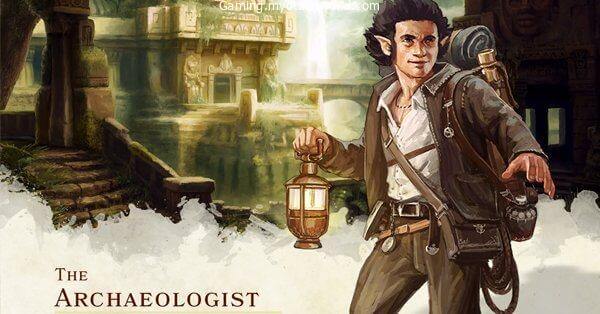
This is the setting from Tomb of Annihilation, and it’s funny when you give it some thought.
This is the perfect material for creating a character in the vein of Indiana Jones.
To create a tomb-raiding detective on par with Lara Croft, all you need is a firm grasp of History and a knack for survival.
Since archaeologists need steady hands, swift movements, and lethal accuracy to protect artefacts, the rogue is a great fit for the field.
It’s a hill I’d gladly die on if this were to happen.
4. Folk Hero

Consider that rogues like Robin Hood already have a place in Folk Hero canons.
Imagine a rogue squaring off against whatever wild animal the party encounters and ultimately winning, thanks to their proficiency in Animal Handling and Survival.
What a fantastic idea!
Bards would tell stories about Folk Heroes because of their heroic but unthreatening lives.
If you’re looking to create an honest scoundrel, Folk Hero is the path to take.
The tragic origin tale can be maintained if desired.
3. Noble
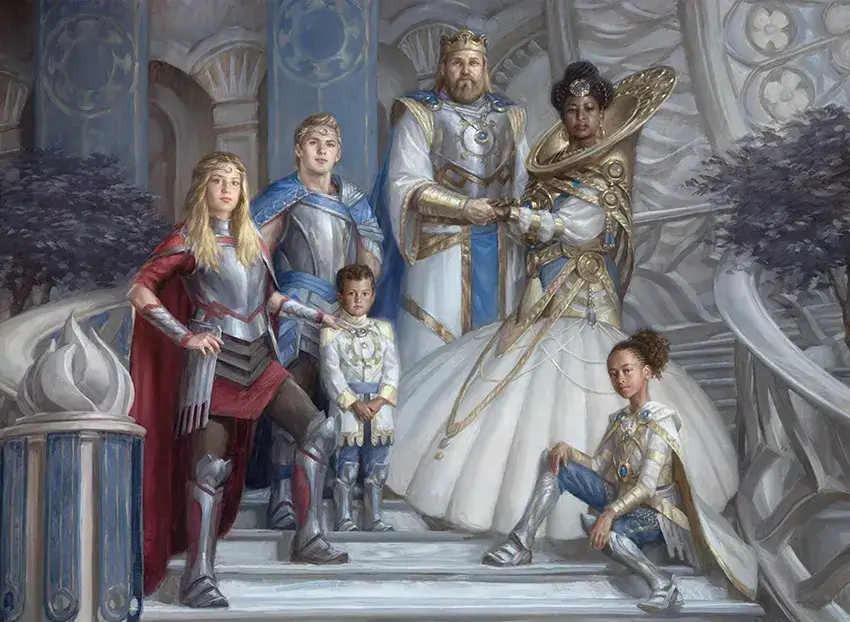
Let me break things down for you:
To be sure, noble might be extremely trendy, but it is not required to be so.
Let’s pretend your scoundrel comes from a noble family that still exists and is very fond of them.
For whatever reason, your protagonist may have chosen a life of crime and anonymity.
Perhaps they’re a complete thief or they made a friend in the underworld who turned them on to criminal pursuits.
Not every shady character needs to come from rough neighborhoods, which is why a noble upbringing can make for a fascinating rogue’s origin story.
2. Sailor
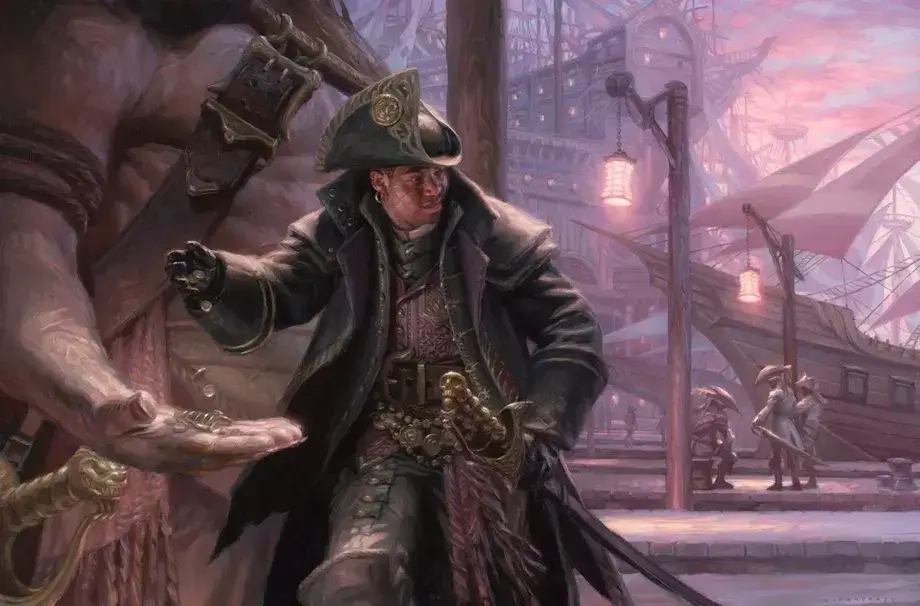
This is something I’ve done in a campaign before.
This was the case, too much fun.
If you’re going to be a rogue, might as well be a pirate, right?
Since the Swashbuckler archetype already exists, a background on the sea is ideal.
The skills you’ve been given, Athletics and Perception, are both quite useful.
In addition, you can choose a pirate-themed variation if you so like.
The party will be glad to have you along if you know your way around watercraft and its associated tools.
1. Soldier
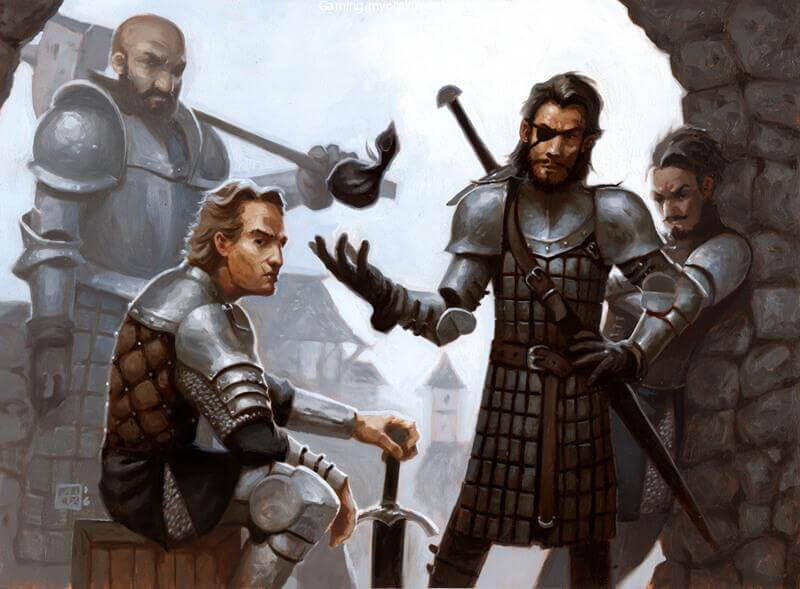
All armies have spies, which sounds obvious, but stick with me.
Perhaps your hero enlisted in the military despite lacking the physical prowess required of a frontline soldier.
As an alternative, they rose through the ranks to become a mercenary-style elite unit.
With lethal precision, and before the victim had time to call for help.
The combination of Athletics and Intimidation skills makes this a great background for a rogue.
To put it simply, go for it.
